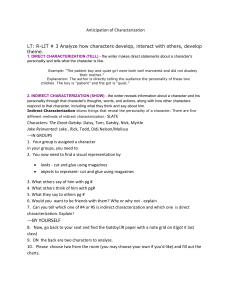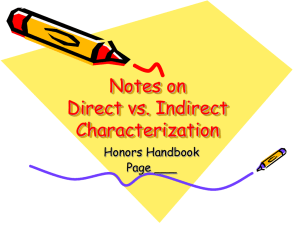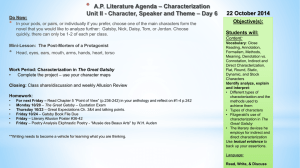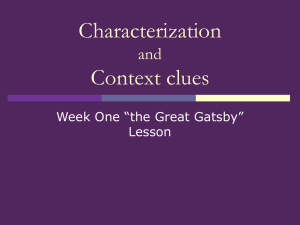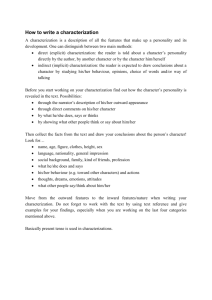Characterization and Steal method
advertisement
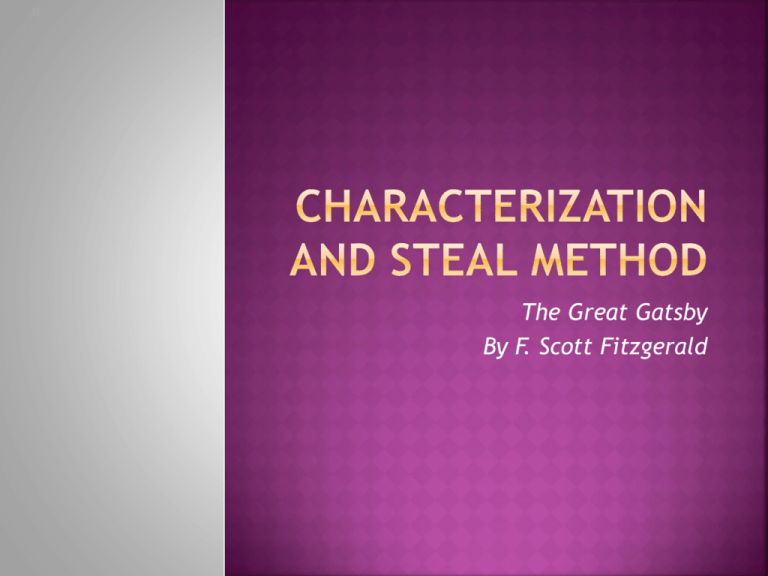
The Great Gatsby By F. Scott Fitzgerald A CHARACTER IS A PERSON OR ANIMAL IN THE STORY. The process by which the writer reveals the personality of a character Two types direct characterization: tells audience what the personality of a character is indirect characterization: shows things that reveal the personality of a character “STEAL” method • S=Speech: What does the character say? How does the character speak? “He went to Oxford College in England. You know Oxford College?” (76). T=Thoughts: What is revealed through the character’s private thoughts and feelings? “Suddenly I wasn’t thinking of Daisy and Gatsby any more but of this hard, limited person who dealt in universal skepticism and who leaned back jauntily just within the circle of my arm.” (84) • E=Effect on others toward the character: What is revealed through the character’s effect on other people? How do other characters feel or behave in reaction to the character? “’You’re acting like a little boy…not only that, but you’re rude. Daisy’s sitting in there all alone.”’(93) – Daisy’s effect on Gatsby • A=Actions: What does the character do? How does the character behave? “I want to see you…get on the next train,” (30). • L=Looks: What does the character look like? How does the character dress? “Two shining, arrogant eyes had established dominance over his face…”(11). • The method of character development in which the author simply tells you what the character is like. For example, “Miss Alice was the nicest person you would ever want to meet,” is direct characterization The method of characterization that is most similar to the way we learn about people in real life. Using indirect characterization, the author presents the character’s personality through what he/she says, his/her actions, or how other characters relate to him/her. You must then draw your own conclusions about the character. Read the following example of characterization. Decide whether it is an example of direct or indirect characterization. (A) James was one of those people who was constantly angry. He looked for trouble wherever he went, and he usually found it. Which method is more effective in developing the character? Why do you think so? Direct characterization or Indirect characterization Jay Gatsby Daisy Buchanan Tom Buchanan Nick Jordan Baker
